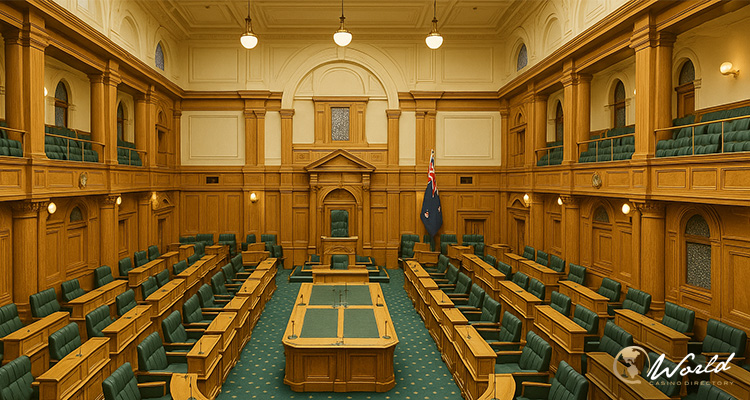A major step toward regulating online gambling in New Zealand has been taken, as the proposed Online Casino Bill passed its first reading in Parliament. The legislation, introduced by Minister of Internal Affairs Brooke van Velden, received broad support with 83 votes in favor and 39 against in a conscience vote, marking a shift in the country’s approach to a market currently dominated by unregulated offshore operators.
The goal of the bill is to bring structure and accountability to New Zealand’s online gambling space.
“Currently, New Zealanders can legally access thousands of offshore gambling websites. But the market is unregulated, so there are no player safety standards or oversight of harm minimisation,” said van Velden, as reported by Beehive.gvt.nz. “My intention with this Bill is to ensure that online gambling is safer for New Zealanders who wish to gamble online to do so. In addition, that companies providing this service contribute to tax revenue and funding the services that treat gambling harm in New Zealand.”
Licensing system and operator requirements:
Under the proposed law, the government would auction up to 15 online gambling licences, each valid for three years. Companies applying would be required to meet several strict conditions. These include a mandatory harm prevention strategy, a track record of compliance, and robust age verification measures to block users under 18. Operators must also contribute 1.24% of their profits to a Problem Gambling Levy that funds treatment services and comply with stringent advertising limits, particularly avoiding content targeting minors.
The Department of Internal Affairs would oversee the regulatory framework and recover enforcement costs through licensing fees. Violations of the rules could result in penalties of up to NZD 5 million.
The legislation specifies that New Zealand-based companies would not receive any preferential treatment during the licensing process, with all applicants subject to the same standards.
Mixed reactions from political parties and advocacy groups:
While the bill gained the support of all coalition parties, it also received a notable endorsement from the Green Party. All 14 Green MPs voted in favor, breaking from opposition parties Labour and Te Pāti Māori, who opposed the measure. Green Party internal affairs spokesperson Benjamin Doyle explained their party’s rationale: “We always want to support movements towards harm reduction. So with online gambling, it’s totally unregulated at the moment, and we see this as a very small step in the right direction to enact harm reduction techniques.”
Doyle added that although the legislation does not go far enough in its current form, the select committee phase presents an opportunity for improvements. “It’s definitely not far enough, but we believe that going to select committee to hear from experts, community, people with lived experience of online gambling harm, and advocacy groups may be able to help us to inform changes and amendments and improvements to this legislation that will actually enact harm reduction.”
However, the Problem Gambling Foundation has voiced concern that the bill may inadvertently increase online gambling activity rather than curb its negative effects. Advocacy and public health director Andree Froude urged more robust player protection features, including requiring users to pre-commit time and money limits and banning credit card use for deposits to prevent players from accumulating debt.
The bill will now enter the select committee stage, where public submissions will be accepted, and additional scrutiny is expected. Van Velden encouraged community input: “The Bill will now proceed to select committee, and I would encourage interested New Zealanders to have their say when public submissions open.”
Meanwhile, authorities have already begun preparing for the eventual licensing process. Trina Lowry, director of the online gambling implementation programme, called on operators to register their interest ahead of the planned 2026 auction. “As we continue to design and implement the system, we want to ensure it is clear, efficient and supportive for potential operators,” Lowry said. She noted that input from operators will help tailor the process to be both functional and transparent.


